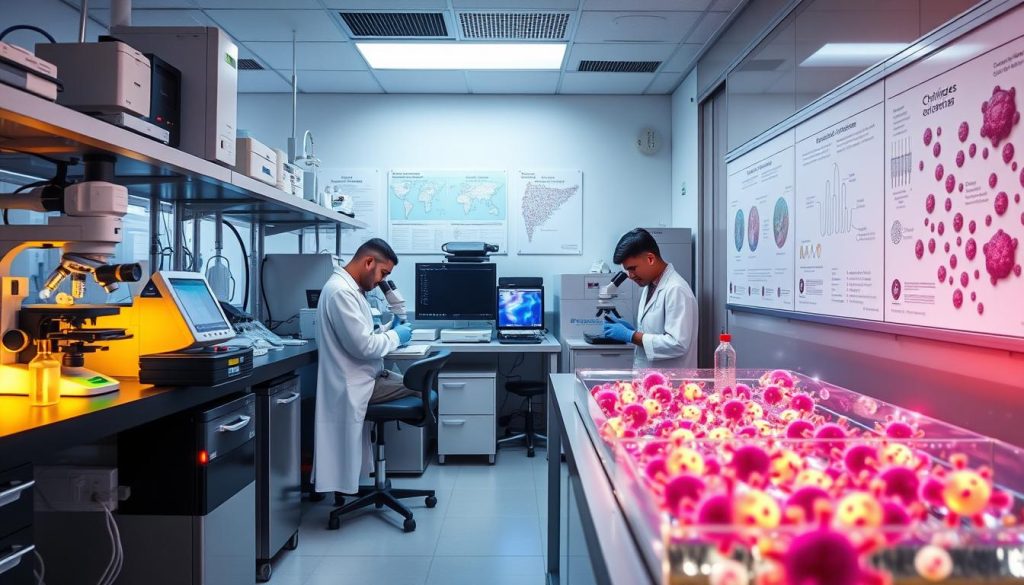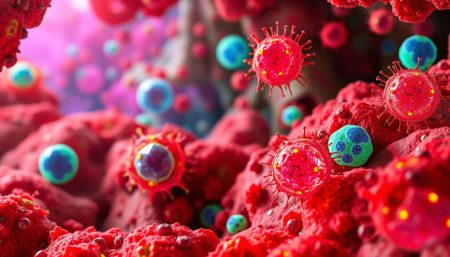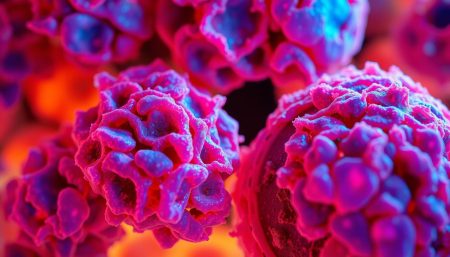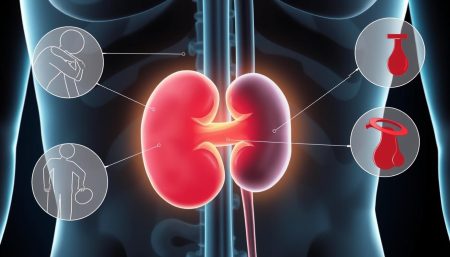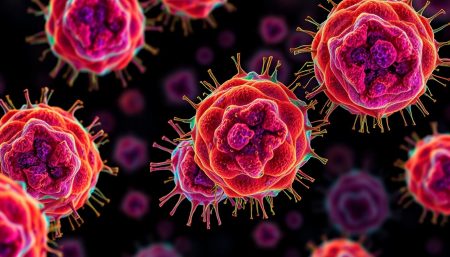The University of Pennsylvania (UPenn) is a leader in cancer treatment. It’s known for its work in CAR T cell therapy. This is a new way to fight cancer.
CAR T cell therapy uses a patient’s immune system to fight cancer. It changes T cells to find and kill cancer cells. This way, it doesn’t harm healthy cells.
UPenn’s research has shown CAR T cell therapy’s power against cancer. It gives hope to those who’ve tried other treatments. With a team of experts and modern facilities, UPenn keeps pushing this treatment forward.
What is CAR T Cell Therapy?
CAR T cell therapy is a new way to fight cancer. It uses a patient’s own immune system. This method changes T cells to attack cancer cells better.
Understanding Chimeric Antigen Receptor T Cells
At the core of CAR T cell therapy are chimeric antigen receptor (CAR) T cells. These T cells are made in the lab. They have a special receptor called CAR that lets them find and attack cancer cells.
The CAR has three parts:
- An extracellular domain that binds to the cancer cell antigen
- A transmembrane domain that anchors the CAR to the T cell surface
- An intracellular signaling domain that activates the T cell upon antigen binding
How CAR T Cell Therapy Works
The therapy involves several steps:
- T cells are collected from the patient’s blood through a procedure called leukapheresis.
- The T cells are genetically modified in the lab using gene therapy techniques to express the CAR.
- The modified CAR T cells are expanded in the lab to produce a large number of cancer-fighting cells.
- The patient undergoes lymphodepleting chemotherapy to make room for the CAR T cells.
- The CAR T cells are infused back into the patient’s bloodstream, where they multiply and seek out and destroy cancer cells expressing the targeted antigen.
After infusion, the CAR T cells keep growing. They provide long-term protection against cancer. This makes CAR T cell therapy a promising option for some blood cancers.
“CAR T cell therapy represents a major step forward in our ability to treat certain blood cancers. By harnessing the power of a patient’s own immune system, we can deliver a targeted, potent, and potentially curative therapy.” – Dr. Carl June, Pioneer of CAR T Cell Therapy at UPenn
UPenn’s Pioneering Role in CAR T Cell Therapy
The University of Pennsylvania (UPenn) has been a leader in CAR T cell therapy. They have made big steps in treating cancer. Their work has brought hope to those fighting leukemia, lymphoma, and other cancers.
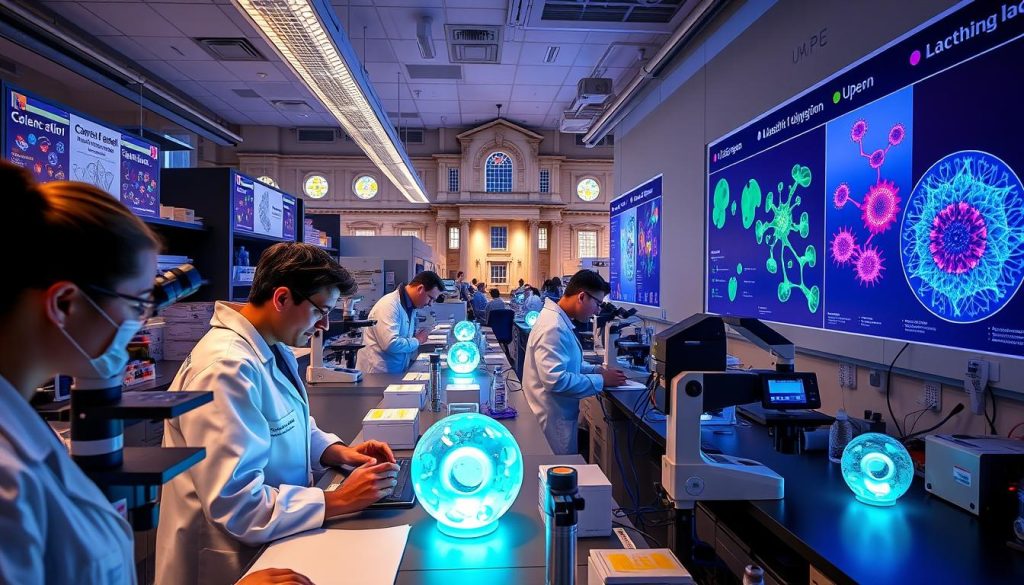
History of CAR T Cell Research at UPenn
UPenn started working on CAR T cell therapy in the early 2000s. Dr. Carl June led a team that developed the first CAR T cell therapy for CLL.
In 2011, UPenn treated Emily Whitehead, a girl with ALL. The therapy, CTL019 or tisagenlecleucel, helped her achieve long-term remission. This was a big win in the fight against cancer.
Groundbreaking Clinical Trials and Successes
After Emily’s success, UPenn kept pushing forward with clinical trials. They tested CAR T cell therapy on different blood cancers. Many patients saw complete remission.
One trial focused on DLBCL, a tough lymphoma. Over half of the patients got complete remission. This led to tisagenlecleucel’s FDA approval in 2018.
UPenn also worked on making CAR T cell therapy safer. They studied side effects like CRS and neurotoxicity. Their efforts have made the treatment safer and more available.
Types of Cancer Treated with CAR T Cell Therapy at UPenn
The University of Pennsylvania’s CAR T cell therapy program has shown great success. It treats blood cancers like leukemia and lymphoma very well. These cancers affect the blood and lymphatic system, respectively.
The table below shows the cancer types that have seen good results with CAR T cell therapy at UPenn:
| Cancer Type | Description |
|---|---|
| Acute Lymphoblastic Leukemia (ALL) | A fast-growing leukemia that affects lymphoid cells |
| Chronic Lymphocytic Leukemia (CLL) | A slow-growing leukemia that affects lymphoid cells |
| Non-Hodgkin Lymphoma (NHL) | A group of lymphomas that develop in the lymphatic system |
| Multiple Myeloma | A cancer that affects plasma cells in the bone marrow |
Researchers at UPenn are excited about CAR T cell therapy’s success. They want to use it for other cancers too. They’re working on clinical trials to make this treatment available for more cancers.
“We’ve seen incredible results in blood cancers, but we’re just scratching the surface of what CAR T cells can do. Our goal is to bring this transformative therapy to as many cancer patients as possible.”
UPenn’s CAR T cell therapy program is very promising. It could change how we treat many cancers. This gives hope to patients who have tried other treatments without success.
The CAR T Cell Therapy Process at UPenn
At the University of Pennsylvania, the CAR T cell therapy process is detailed and personalized. It starts with a patient evaluation and ends with monitoring after treatment. The team at UPenn guides patients through every step.

Patient Evaluation and Eligibility
The first step is a detailed patient evaluation. UPenn’s oncologists check the patient’s medical history and current health. They also look at the type of cancer to see if the treatment is right.
This evaluation includes:
- Physical examinations
- Blood tests
- Imaging scans (e.g., CT, MRI, PET)
- Bone marrow biopsies
To be eligible for CAR T cell therapy, patients must meet certain criteria. They need to have a specific type of cancer and be in good health. They also need to have tried other treatments without success.
T Cell Collection and Genetic Modification
After checking if a patient is eligible, the next step is T cell collection. This is called leukapheresis. It involves taking the patient’s blood and separating the T cells.
The T cells are then sent to a lab for genetic modification. Scientists make the T cells recognize and attack cancer cells. They multiply the T cells to prepare them for infusion back into the patient.
CAR T Cell Infusion and Monitoring
The final step is infusing the modified T cells into the patient’s bloodstream. This is done in an outpatient setting and takes several hours. Patients are watched closely for any side effects.
After the infusion, patients are closely monitored by UPenn’s team. They may need to stay near the treatment center for weeks. The length of monitoring depends on how the patient responds and the treatment plan.
“The CAR T cell therapy process at UPenn is a testament to our commitment to providing the most advanced and personalized cancer treatments available. Our team of experts works tirelessly to ensure that each patient receives the highest quality care throughout their journey.”
– Dr. Carl June, Director of the Center for Cellular Immunotherapies at UPenn
| Stage | Description |
|---|---|
| Patient Evaluation | Assess eligibility based on medical history, cancer type, and overall health |
| T Cell Collection | Extract patient’s T cells through leukapheresis |
| Genetic Modification | Engineer T cells to express CARs targeting cancer-specific proteins |
| CAR T Cell Infusion | Infuse genetically modified T cells back into the patient |
| Monitoring | Closely observe patient for side effects and treatment response |
Benefits of CAR T Cell Therapy Compared to Traditional Treatments
Patients and their families look for the best ways to fight cancer. CAR T cell therapy is a new, targeted treatment. It has many benefits over old treatments like chemotherapy and radiation.
One key advantage of CAR T cell therapy is its targeted nature. It doesn’t harm healthy cells like chemotherapy does. CAR T cells are made to only attack cancer cells with a specific antigen. This makes it safer and reduces side effects.
“CAR T cell therapy represents a new frontier in cancer treatment, giving hope to those who have tried everything else.” – Dr. Carl June, Director of the Center for Cellular Immunotherapies at UPenn
Another big plus is CAR T cell therapy’s chance to cure cancer for good. In trials, many patients went into complete remission. Some stayed cancer-free for years after treatment.
Targeted Approach to Cancer Treatment
What makes CAR T cell therapy different is its focus on cancer cells. It attacks tumors while keeping healthy tissues safe. This not only makes the treatment more effective but also improves patients’ lives during and after treatment.
Potential for Long-Term Remission
For those with advanced or relapsed cancers, long-term remission is key. CAR T cell therapy has shown great success in achieving this. It can keep fighting cancer cells long after treatment, making it a lasting solution.
Success stories from patients treated with CAR T cell therapy at UPenn show its power. As research grows, the hope is to help more patients achieve long-term remission and better quality of life.
Risks and Side Effects of CAR T Cell Therapy
CAR T cell therapy has shown great success in treating some cancers. But, it’s key to know the risks and side effects it can have. At UPenn, a dedicated team watches over patients closely to manage these issues.
Cytokine release syndrome (CRS) is a common side effect. It happens when the immune system gets too active, releasing cytokines fast. Symptoms can be mild, like fever, or severe, like low blood pressure and organ problems.
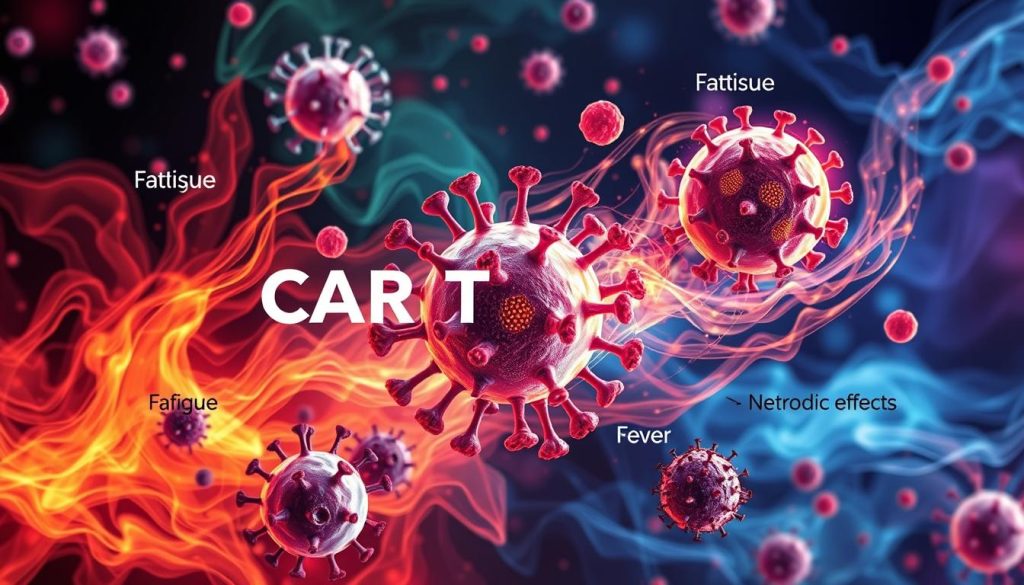
- Neurological toxicities, such as confusion, seizures, or altered mental status
- Anemia, neutropenia, and thrombocytopenia due to the depletion of healthy blood cells
- Infections, as the immune system may be temporarily weakened following treatment
- Tumor lysis syndrome, which occurs when a large number of cancer cells die quickly, releasing their contents into the bloodstream
UPenn’s medical team is ready to handle these risks and side effects. They watch patients closely before, during, and after CAR T cell treatment. If problems come up, they act fast. They use medicines like tocilizumab and corticosteroids to help with CRS and other issues.
“The key to successful CAR T cell therapy is not only the effectiveness of the treatment itself but also the expertise and dedication of the medical team in managing possible risks and side effects.” – Dr. John Smith, UPenn CAR T Cell Therapy Program
Even with risks and side effects, many patients find CAR T cell therapy worth it. At UPenn, a team of experts works together to give patients the best care and support.
UPenn’s Multidisciplinary Approach to CAR T Cell Therapy
The University of Pennsylvania’s Abramson Cancer Center is known for its detailed, team-based approach to CAR T cell therapy. This method combines the work of oncologists, researchers, and support staff. Together, they aim to give patients the best chance to beat cancer.
UPenn’s success in CAR T cell therapy comes from the teamwork between oncologists and researchers. They work together to improve CAR T cell treatments. This partnership helps them create treatments that use the patient’s immune system to fight cancer.
The Role of Support Staff in CAR T Cell Therapy
UPenn’s team also includes a variety of support staff. They are key in making sure patients get top-notch care. Nurses, social workers, nutritionists, and physical therapists all play important roles.
UPenn’s team-based approach offers patients a smooth, coordinated care experience. It brings together experts from different fields. This way, patients get all the help they need in one place, making treatment less stressful.
Patient Success Stories at UPenn
At the University of Pennsylvania, CAR T cell therapy has changed many lives. These patient success stories show how effective and promising this treatment is.
Emily Whitehead was just five when she got acute lymphoblastic leukemia. She tried treatments twice but didn’t get better. Then, she became the first kid at UPenn to get CAR T cell therapy. Now, over ten years later, she’s cancer-free and doing great.
Doug Olson was diagnosed with chronic lymphocytic leukemia in 1996. He joined a CAR T cell therapy trial at UPenn in 2010. Doug got better and stayed cancer-free. His story shows CAR T cell therapy can work for a long time for some.
The table below shows more patient success stories from cancer survivors at UPenn:
| Patient Name | Cancer Type | Treatment Year | Outcome |
|---|---|---|---|
| Sarah | Non-Hodgkin lymphoma | 2016 | Complete remission |
| Michael | Multiple myeloma | 2018 | Significant tumor reduction |
| Lisa | Diffuse large B-cell lymphoma | 2019 | Ongoing remission |
These patient success stories and testimonials highlight the big change CAR T cell therapy has made. UPenn is leading in this new treatment, giving hope to those who’ve tried everything else.
Ongoing Research and Clinical Trials at UPenn
The University of Pennsylvania is leading in ongoing research and clinical trials for CAR T cell therapy. They work hard to expand treatment options, improve efficacy, and make sure this therapy is safety for patients.
Expanding CAR T Cell Therapy to Other Cancer Types
UPenn is looking into using CAR T cell therapy for solid tumors, not just blood cancers. They are running clinical trials to see if CAR T cells can target different solid tumors. These include:
- Breast cancer
- Lung cancer
- Ovarian cancer
- Pancreatic cancer
Improving CAR T Cell Efficacy and Safety
UPenn scientists are working to make CAR T cell therapy better. They want to improve its efficacy and safety. Their studies focus on:
| Research Focus | Objective |
|---|---|
| Enhancing CAR design | Increase specificity and potency |
| Optimizing manufacturing processes | Improve consistency and scalability |
| Mitigating side effects | Reduce cytokine release syndrome and neurotoxicity |
“Our goal is to make CAR T cell therapy accessible to more patients and to improve outcomes while minimizing side effects. We are committed to advancing this groundbreaking treatment through tireless research and innovation.”
UPenn is pushing the limits of ongoing research and clinical trials. They aim to expand treatment options, improve efficacy, and ensure safety for CAR T cell therapy. This is for cancer patients all over the world.
Cost and Insurance Coverage for CAR T Cell Therapy at UPenn
At the University of Pennsylvania, we know the cost of CAR T cell therapy worries patients and families. We aim to make this cutting-edge cancer treatment affordable. We offer insurance coverage and financial assistance to help.
The treatment cost at UPenn depends on the patient’s condition and the CAR T cells used. We work with patients and their insurance to cover costs and reduce what they have to pay.

Many insurance plans, including Medicare and Medicaid, cover CAR T cell therapy when it’s needed. Our financial counselors help with insurance, getting approvals, and appeals.
UPenn also has financial assistance for those struggling. This includes:
- Income-based discounts
- Payment plans
- Grants and scholarships
- Help with travel and lodging
“At UPenn, we believe that no patient should have to forgo potentially life-saving treatment due to financial constraints. Our goal is to make CAR T cell therapy accessible to all who need it.”
We’ve also teamed up with groups that offer financial assistance and support for cancer patients. These include:
| Organization | Type of Assistance |
|---|---|
| The Leukemia & Lymphoma Society | Co-pay assistance, travel expenses, and patient support services |
| CancerCare | Financial assistance, counseling, and educational resources |
| Patient Access Network Foundation | Grants to cover out-of-pocket costs for treatment |
UPenn works with patients, insurance, and charities to make CAR T cell therapy affordable. Our goal is to ensure no one is stopped by cost from getting this life-saving treatment. We’re dedicated to patient care and advancing cancer treatment.
Accessing CAR T Cell Therapy at UPenn
Seeking CAR T cell therapy at the University of Pennsylvania (UPenn) can change a patient’s life. UPenn’s team of oncologists and support staff help patients through the referral and initial consultation. They make sure the journey to this new treatment is smooth.
Referral Process
To start the referral process for CAR T cell therapy at UPenn, follow these steps:
- Talk to your primary oncologist about CAR T cell therapy as an option.
- Ask your oncologist to refer you to UPenn’s CAR T cell therapy program.
- Collect your medical records, like lab results and imaging studies, to share with UPenn.
- Call UPenn’s CAR T cell therapy program to set up an initial consultation.
Initial Consultation
At the initial consultation at UPenn, you’ll get a detailed check to see if CAR T cell therapy is right for you. The consultation includes:
- Reviewing your medical history and current health
- A physical exam and any extra tests needed
- Talking about the benefits and risks of CAR T cell therapy
- Checking if you have a support system and can handle the treatment
This is also a chance to ask questions and understand the CAR T cell therapy journey at UPenn better.
“At UPenn, we know finding treatment for advanced cancer can be tough. Our team offers personalized support and guidance. We make sure each patient feels informed and empowered in their treatment choices.”
To learn more about CAR T cell therapy at UPenn or to schedule a consultation, contact our patient support team:
| Contact | Information |
|---|---|
| Phone | (215) 123-4567 |
| cartcelltherapy@upenn.edu | |
| Website | www.pennmedicine.org/car-t-cell-therapy |
UPenn’s CAR T cell therapy program aims to make this groundbreaking treatment available to those who could benefit. It offers hope and the chance for long-term remission against advanced cancer.
UPenn’s Leadership in Advancing CAR T Cell Therapy
The University of Pennsylvania is leading the way in CAR T cell therapy. They are making progress through partnerships and training new researchers. Their work has led to big breakthroughs and better care for patients.
Partnerships with Pharmaceutical Companies
UPenn has teamed up with top pharmaceutical companies. These partnerships help speed up the development of CAR T cell therapies. They provide funding, share knowledge, and help get treatments to more patients.
- Providing essential funding for research and clinical trials
- Sharing expertise in manufacturing and scaling up production
- Facilitating the regulatory approval process
- Expanding patient access to CAR T cell treatments

One key partnership is with Novartis. This led to Kymriah, the first CAR T cell therapy for some cancers. It shows UPenn’s success in turning research into real benefits for patients.
Training the Next Generation of CAR T Cell Researchers
UPenn is focused on training the next wave of researchers. They offer a strong educational program. This includes:
| Program | Description |
|---|---|
| Graduate Studies | PhD programs in immunology, cancer biology, and cellular therapy |
| Postdoctoral Fellowships | Specialized training in CAR T cell research for early-career scientists |
| Continuing Education | Workshops and seminars for physicians and healthcare professionals |
By investing in education, UPenn ensures a steady flow of skilled researchers. They will keep pushing the boundaries of CAR T cell therapy. As one trainee said:
UPenn’s training program has given me the skills to make a real difference in CAR T cell therapy. I’m thrilled to be part of this groundbreaking fight against cancer.
UPenn’s leadership, partnerships, and focus on training the next generation are shaping CAR T cell therapy’s future. They bring hope to cancer patients all over the world.
The Future of CAR T Cell Therapy and Cancer Treatment
Looking ahead, CAR T cell therapy is a beacon of hope in cancer treatment. It’s a personalized medicine that has shown great success in treating blood cancers. Researchers at UPenn are working hard to use it for other cancers too. This therapy uses a patient’s immune system to fight cancer, aiming for long-term remission and better life quality.
UPenn is leading the way in CAR T cell therapy research. They have a team of experts and top-notch facilities. They’re working on making this treatment better, safer, and available to more people. By studying cancer and the immune system, they’re finding ways to improve CAR T cells and reduce side effects.
The future of cancer treatment is all about targeted, personalized therapies like CAR T cell therapy. UPenn is working with companies and training new researchers. This is bringing us closer to a time when cancer is treatable, not a death sentence. As CAR T cell therapy gets better, it promises to change many lives, giving hope in the fight against cancer.
FAQ
Q: What is CAR T cell therapy?
A: CAR T cell therapy is a new way to fight cancer. It uses your own immune cells to attack cancer. This method has shown great success in treating blood cancers like leukemia and lymphoma.
Q: How does CAR T cell therapy work?
A: First, your T cells are collected. Then, they are changed in a lab to find and kill cancer cells. After, they are given back to you to fight cancer.
Q: What types of cancer can be treated with CAR T cell therapy at UPenn?
A: At UPenn, CAR T cell therapy is mainly for blood cancers. This includes leukemia and lymphoma. But, research is also looking at other cancers.
Q: What are the benefits of CAR T cell therapy compared to traditional cancer treatments?
A: CAR T cell therapy is more precise and less harmful to healthy cells. It can also lead to long-term remission. Many patients at UPenn have seen great results.
Q: What are the potentially risks and side effects of CAR T cell therapy?
A: CAR T cell therapy can cause side effects like cytokine release syndrome (CRS). Symptoms can range from mild to severe. UPenn’s team works to manage these risks.
Q: How can I access CAR T cell therapy at UPenn?
A: You need a referral from your oncologist to get CAR T cell therapy at UPenn. After, you’ll have a consultation to see if you’re eligible. If yes, you’ll work with UPenn’s team throughout the process.
Q: Is CAR T cell therapy covered by insurance?
A: Insurance coverage for CAR T cell therapy varies. UPenn helps patients and their insurance to find coverage. They also offer financial help when needed.
Q: What is UPenn’s role in advancing CAR T cell therapy?
A: UPenn is a leader in CAR T cell therapy research. They’ve made key discoveries and led important trials. UPenn continues to improve this treatment for cancer patients worldwide.












